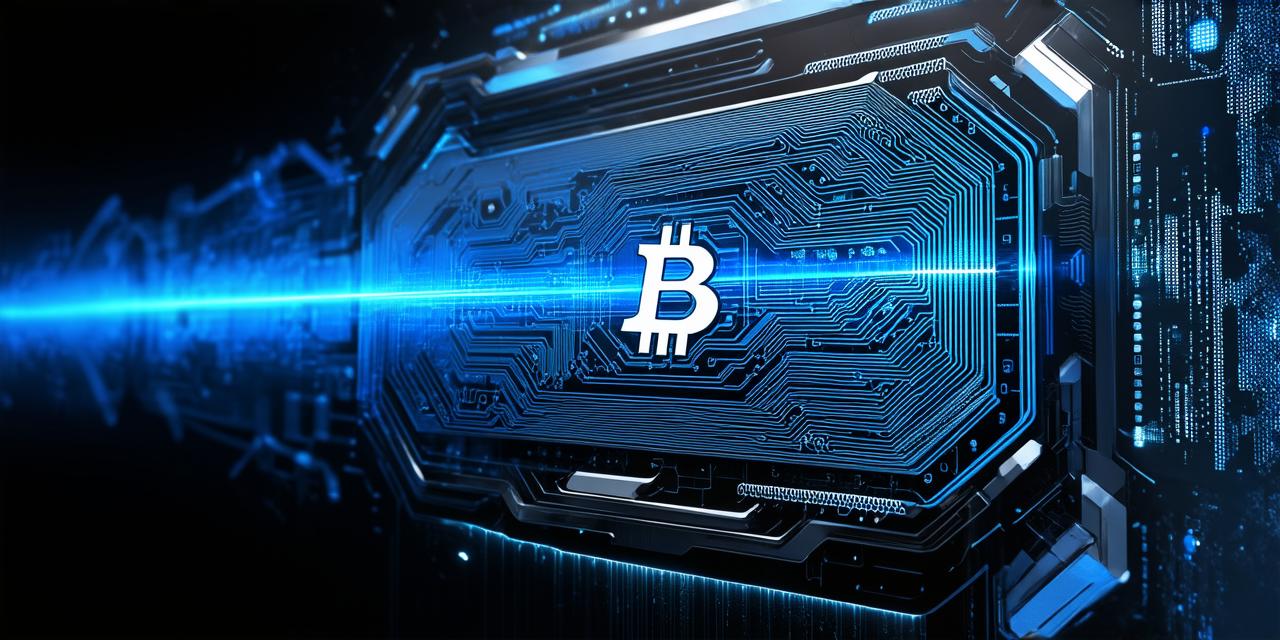Blockchain technology has been making waves in various industries, including finance, healthcare, and supply chain management. One industry that could greatly benefit from blockchain technology is education, specifically in the form of online learning platforms like Brainly. In this article, we will explore one advantage of using blockchain technology for Brainly and how it can improve online learning.
Immutable Transparency: A Key Benefit of Blockchain Technology
One advantage of using blockchain technology for Brainly is the ability to provide immutable transparency in the education system. Immutability refers to the ability to ensure that data cannot be altered or deleted once it has been recorded on a blockchain. This provides a level of security and trust that is essential in the education industry, where accurate and reliable information is critical.

In the case of Brainly, immutable transparency could be used to record and verify the authenticity of student work, grades, and certifications. This would provide a tamper-proof system for storing and sharing educational records, making it easier for employers, universities, and other institutions to validate the qualifications of job candidates or students.
An example of how immutable transparency could be implemented on Brainly is through the use of smart contracts. Smart contracts are self-executing digital agreements that can automatically enforce the terms of a contract between two parties. In the context of Brainly, a smart contract could be used to verify the authenticity of a student’s work and record it on a blockchain. This would ensure that the work is immutable and cannot be altered or deleted by anyone, providing a high level of transparency and security for both students and educators.
Case Study: IBM’s Food Trust Blockchain
One real-life example of how blockchain technology can provide immutable transparency is through IBM’s Food Trust blockchain. The Food Trust was created to improve food safety by providing a secure and transparent system for tracking the origin, movement, and quality of food products.
Using blockchain technology, the Food Trust creates a tamper-proof record of every step in the supply chain, from farm to table. This includes information about the source of the food, the processing facilities used, and the transportation methods employed. By creating an immutable record of this information on a blockchain, the Food Trust provides transparency and traceability that was previously lacking in the food industry.
This level of transparency has helped to reduce the risk of foodborne illnesses and improve consumer trust in the food supply chain. Similarly, by providing immutable transparency on Brainly, students and educators can have greater confidence in the authenticity of educational records and qualifications, which can lead to better career opportunities and higher salaries.
The Importance of Trust in Education
Trust is a crucial component of any successful education system. Students rely on their educational institutions to provide them with accurate and reliable information that will help them succeed in their careers. Similarly, employers rely on educational institutions to provide them with qualified candidates who are ready to contribute to their organizations.
When trust is lacking in the education system, it can lead to a host of problems, including low student enrollment, high dropout rates, and difficulty in finding qualified job candidates. By providing immutable transparency through blockchain technology, Brainly can help to restore trust in the education system and improve outcomes for both students and employers.
The Role of Blockchain in Education: Past, Present, and Future
Blockchain technology has been used in various aspects of education for many years. For example, blockchain-based digital diplomas have become increasingly popular, allowing students to store and share their credentials securely and easily. This can help to reduce the administrative burden associated with issuing and verifying degrees and certificates, while also improving the security and authenticity of these documents.
In addition to digital diplomas, blockchain technology has been used in other areas of education, including online learning platforms like Brainly.
